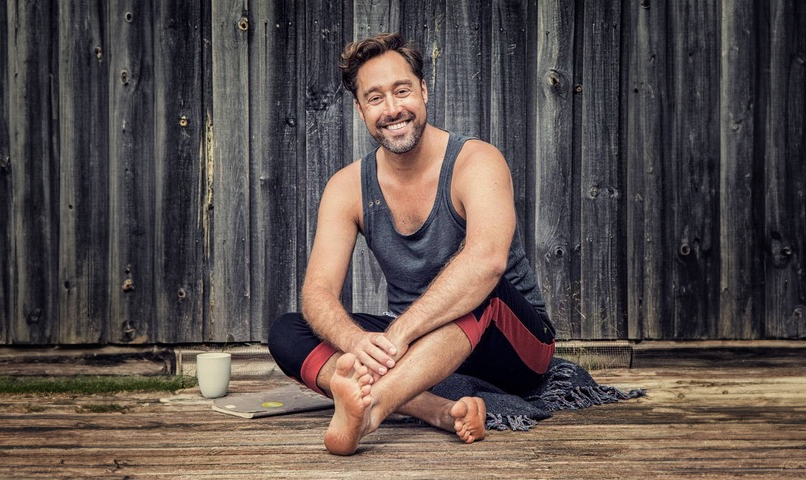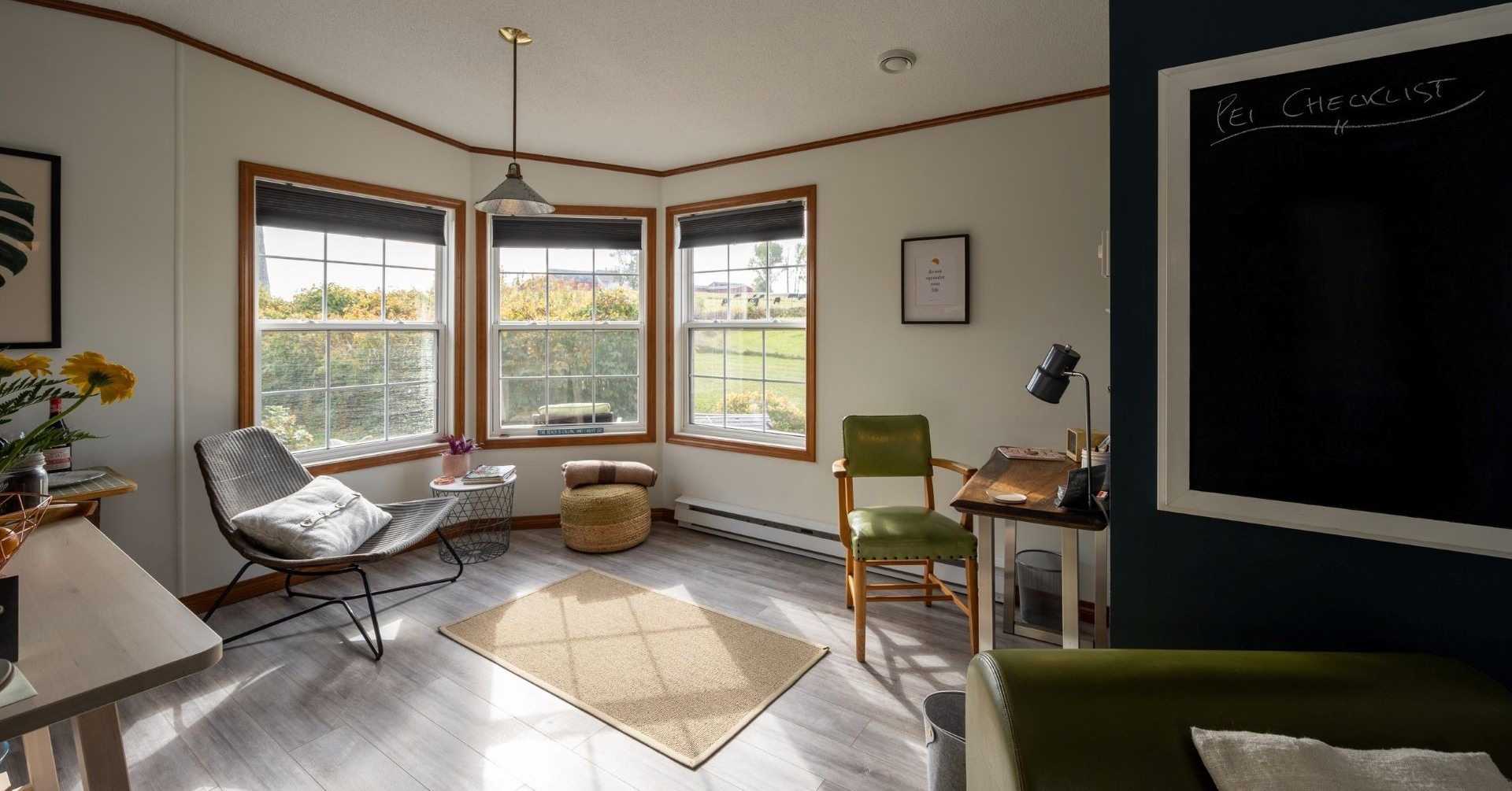“For me, theatre was always about communicating emotionally with people — being on a stage, telling a story to an audience. As I started to explore, essentially, the things that allowed me to do theatre — my own self-care practices — that became more and more a part of my world,” he shares.
More than a vacation spot
The Hideout is located in Albany, on PEI’s scenic South Shore at the end of a private country road not far from the Confederation Bridge. Guests are surrounded by local wildlife. The rooms are decorated with art by Island artists and amenities feature items from local shops.
Lewis says it was especially important for him to prioritize other artists and wellness practitioners in creating the space. So, for five years, The Hideout has hosted affordable, self-directed, low-cost residencies in the shoulder seasons.
This year, writer Christopher DiRaddo, BA 98, will become The Hideout’s inaugural artist-in-residence.
“We see the artist-in-residence program as an extension of the residencies already on offer,” he notes.
In keeping with its focus on supporting the local community, The Hideout also offers one full scholarship annually for Maritime-based artists and wellness/mental-health practitioners. Applicants who identify as Black, Indigenous or people of colour, or as 2SLGBTQIA+, are especially encouraged to apply.
Family ties
For Lewis, the community and support he received during his time at Concordia lives on through his close relationships with former classmates.
“I still think of many of them as family, even though I’m not pursuing a career in the theatre like I was at that time,” he says. “I feel that same sense of support from them and for them, for all the different ways we’ve gone out into the world and pursued the things we love.”
He describes the theatre department as appealing for its “intensity and intimacy.” And he says that the self-development he experienced as a student has translated into creating practical opportunities for self-care for others.
“We worked really closely with our professors, and they instilled in us that real ownership not just of what we were studying, but how we were developing ourselves as both performers and people.
“They really instilled those values in me, and it still drives me to this day.”


 Joshua Lewis is co-owner of The Hideout, a vacation spot on Prince Edward Island.
Joshua Lewis is co-owner of The Hideout, a vacation spot on Prince Edward Island.
 Joshua Lewis and his partner, Trevor Corkum, created The Hideout as a place for guests to prioritize well-being on Prince Edward Island.
Joshua Lewis and his partner, Trevor Corkum, created The Hideout as a place for guests to prioritize well-being on Prince Edward Island.